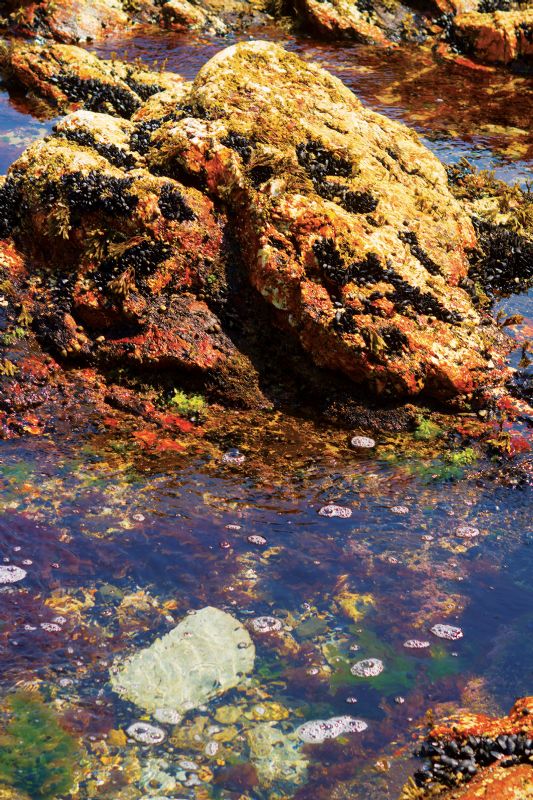- Home
- News, Articles & Reviews
We are hiring! Please click here to join our growing magazine delivery team in Gloucestershire!
Areas
Pets & Wildlife
Archive

Fun beside the seaside
All Areas > Pets & Wildlife > Wildlife Matters
Author: Maxine Raggatt, Posted: Wednesday, 25th July 2018, 09:00
During the current long spell of hot weather, the sea temperature has risen to approximately 15-20°C and the beaches are filled with families and friends enjoying all the coast has to offer. We have a great variety of beaches in the UK ranging from dunes, pebbles and cliffs to name a few.
Fossil hunting
Thousands of years ago, dinosaur and animal bones settled on the seabed and were buried by sediment; forming fossils. As time has moved on, the fossils have risen to the surface and can be found today washed up on our beaches.
A fun activity to do at any age while down by the sea is fossil hunting. You can pack up a little activity kit consisting of a magnifying glass, an old toothbrush for dusting away sand, a camera and a fossil identification sheet. The best time of day to do this is when the tide is dropping back out to sea. This is not only the safest time to do it, but also the waves will have washed up a fresh batch of wild finds.
Rock pools
Another excellent way to spend your day by the coast is looking into rock pools. On a low tide at a rocky beach there will be a whole host of rock pools housing a variety of critters. The environment within them is continually changing, so the plants and animals that live in them have to be particularly hardy to survive such conditions. The sea levels regularly fluctuate, as does the temperature with exposure to sunlight and rough tides.
In these underwater habitats, you are likely to discover a variety of crabs, shrimps, mussels, whelk and starfish clinging to rocks, along with many plants. It isn’t recommended to use nets to catch the animals living there, as they are delicate and this can do them harm. Instead, you can float a small bucket inside the rock pool and see what swims into it for further identification. You don’t want to get caught out by the tide either, so make sure it is pushing back out to sea before you start up your investigations.
Keep it clean
No beach visit is complete without a family picnic; however, it is best to remove as much packaging as possible at home to reduce the likelihood of litter getting left behind or blowing away in the wind. This, of course, does great harm to our environment and wildlife survival due to animals getting tangled up or ingesting rubbish.
You can also ‘take 3 for the sea’. This is an idea whereby you pick up three pieces of litter found on the beach and dispose of them appropriately. Doing so will help towards reducing the alarming amount of plastics and debris found on our beaches and in our oceans.
We can all do our bit to help reduce the amount of debris already scattered around our beaches, and the most encouraging way to do this is not only to educate but to model it to younger generations to restore the natural beauty of our coast.Other Images
Copyright © 2024 The Local Answer Limited.
Unauthorized use and/or duplication of this material without express and written permission from this site's author and/or owner is strictly prohibited. Excerpts and links may be used, provided that full and clear credit is given to The Local Answer Limited and thelocalanswer.co.uk with appropriate and specific direction to the original content.More articles you may be interested in...


© 2024 The Local Answer Limited - Registered in England and Wales - Company No. 06929408
Unit H, Churchill Industrial Estate, Churchill Road, Leckhampton, Cheltenham, GL53 7EG - VAT Registration No. 975613000You are leaving the TLA website...
You are now leaving the TLA website and are going to a website that is not operated by us. The Local Answer are not responsible for the content or availability of linked sites, and cannot accept liability if the linked site has been compromised and contains unsuitable images or other content. If you wish to proceed, please click the "Continue" button below:




